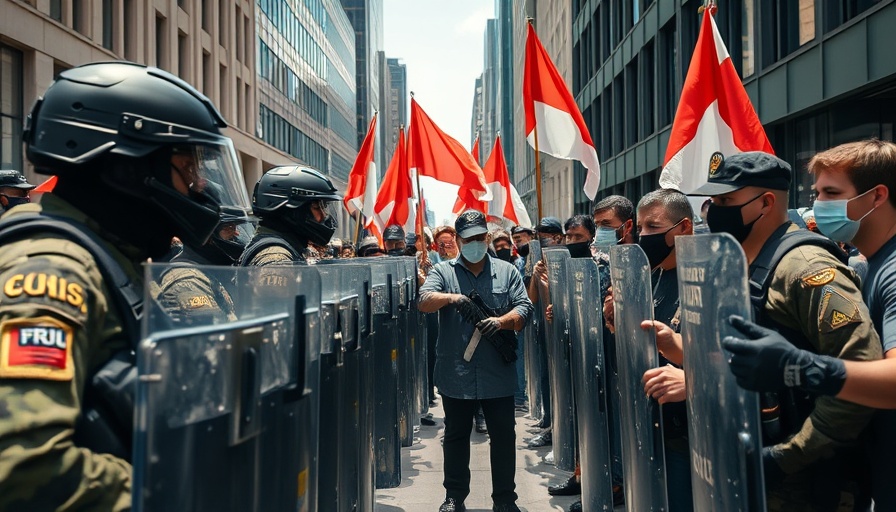
Rising Tensions Over Immigration Enforcement in California
Palo Alto, California—In an urgent response to the Trump administration's controversial deployment of National Guard troops to assist with immigration enforcement in Los Angeles, local leaders are expressing serious concerns over what they see as a dangerous escalation in federal military presence. On June 8, Rep. Sam Liccardo, accompanied by various community leaders and activists, gathered outside the Palo Alto City Hall to denounce these actions, labeling them a "reckless misuse" of military resources.
The backdrop to this outcry is a volatile situation in Los Angeles, where recent U.S. Immigration and Customs Enforcement (ICE) operations have led to significant arrests, unsettling many residents—especially within immigrant communities. In a show of peaceful protest against these enforcement actions, demonstrators clashed with federal agents, resulting in tensions that turned violent as protesters hurled rocks and federal agents retaliated with crowd-control measures such as tear gas and pepper balls.
Historical Context: When the Military Meets Immigration Enforcement
This unprecedented deployment brings to mind the historical use of the National Guard in civil rights protests, notably when President Lyndon B. Johnson dispatched troops to protect civil rights demonstrators in Alabama. Critics argue that President Trump’s action is a reversal of progress in civil liberties, recalling a troubling history of militarization in response to governance issues. The situation poses essential questions regarding the balance of state and federal powers, especially concerning public safety and community trust in law enforcement.
The Voices of Concern—Local Leaders Take a Stand
Amid the crisis, leaders such as Liccardo caution that the deployment of National Guard troops could pave the way for a more militarized approach to immigration enforcement. He warned that any escalation could lead to an invocation of the Insurrection Act, enabling more federal control over civilian oversight. Activist Belinda Arriaga echoed these sentiments, claiming this represents a form of psychological warfare on the immigrant populace, heightening anxiety and fear among families across the state.
Community Response: Calls for Non-Violence and Solidarity
As tensions rise, local leaders are urging protesters to remain nonviolent. The community's response to violence may act as a lens through which these issues are viewed nationally. Liccardo and his allies stressed the need for peaceful demonstrations to avoid giving federal authorities any opportunity to exert greater control, thereby amplifying the civilian outcry against what they perceive as militarized enforcement.
A Federal Perspective: The Justification for Troop Deployment
In defense of the deployment, President Trump stated that there are ‘violent individuals’ impacting the safety of Los Angeles. This assertion reflects a broader narrative used by the administration to justify heightened enforcement—a narrative that is not universally accepted. Critics worry that it feeds into a pattern of heightened surveillance and control that disproportionately affects communities of color and immigrant populations.
What This Means for California: Predictions and Implications
The implications of this situation are profound. As military presence grows in urban areas, local leaders fear future conflicts between protesters and law enforcement may escalate, further fracturing community relations. Anti-immigrant rhetoric may continue to rise, leading to an environment where immigrants feel increasingly isolated and vulnerable. Local vs. federal tensions are likely to become a critical focal point as California grapples with the consequences of national policy decisions.
Conclusion: The Importance of Understanding Immigration Policies
The recent actions taken by the Trump administration concerning immigration enforcement have sparked critical conversations at the community level. With more than just legal implications at hand, public sentiment surrounding these developments demands careful consideration. It’s time to engage in informed discussions and foster understanding around these pressing issues. Keeping informed can empower communities to advocate for their rights and influence policy decisions effectively.
 Add Row
Add Row  Add
Add 




 Add Row
Add Row  Add
Add 

Write A Comment